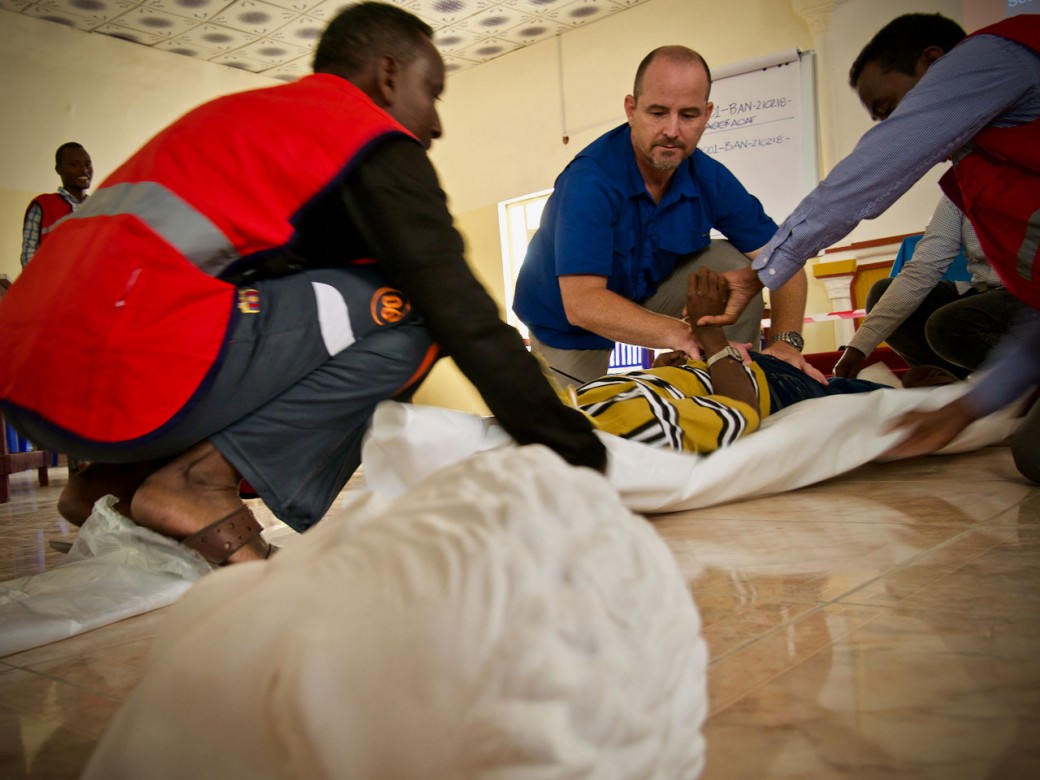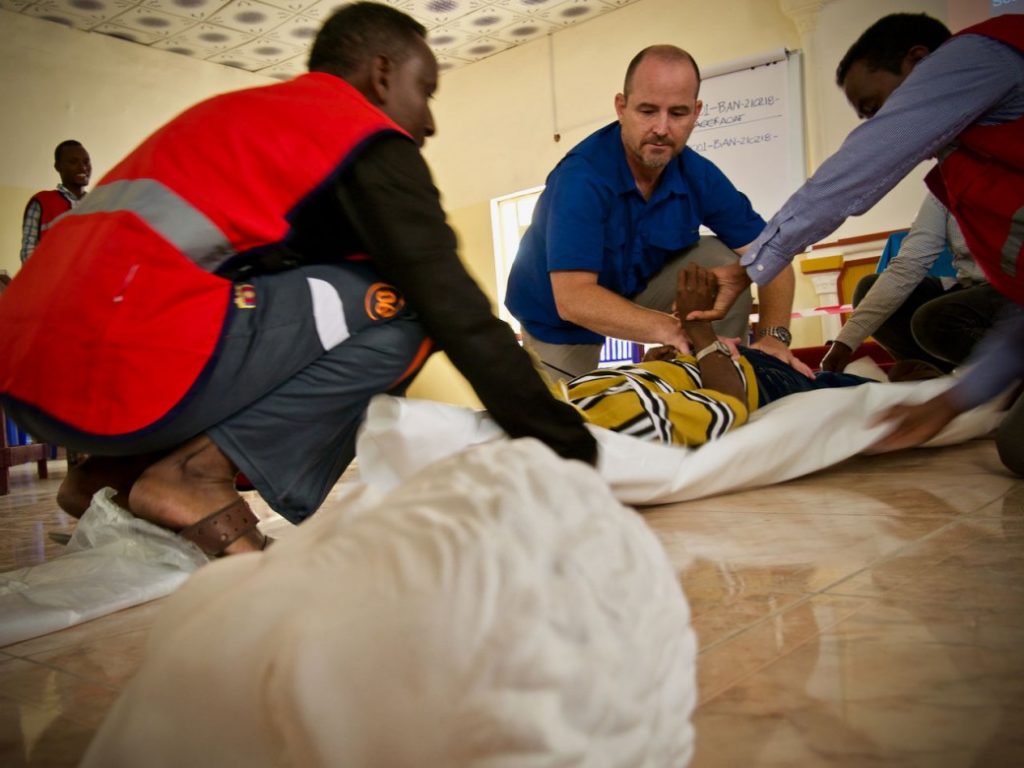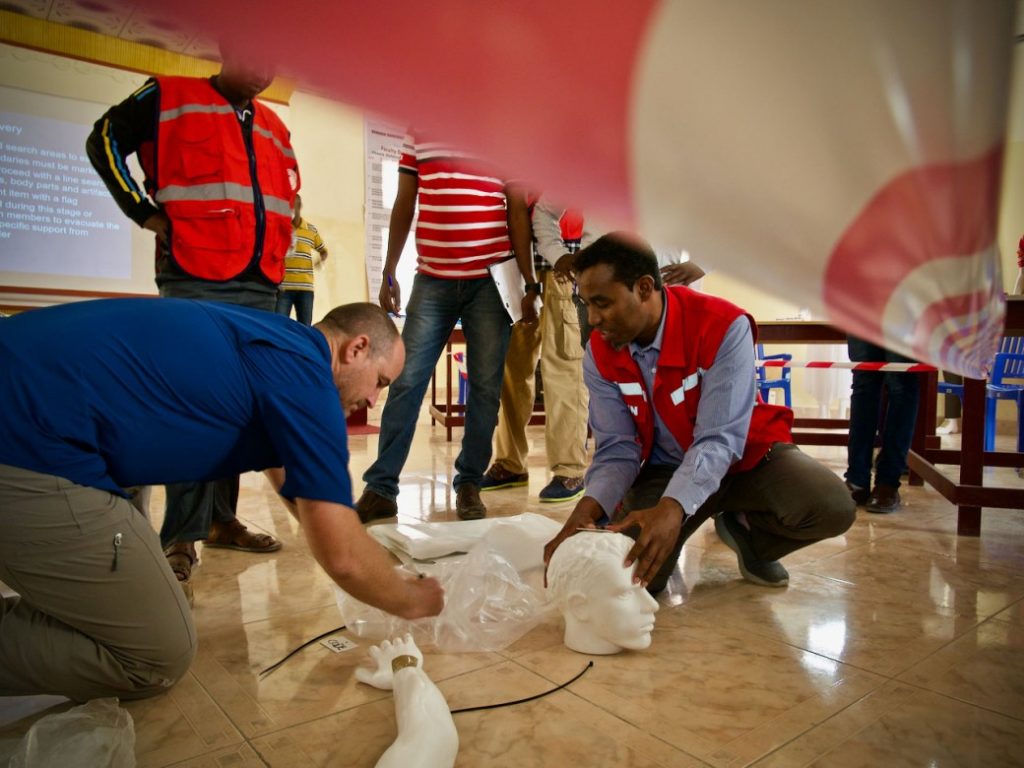ICRC trains first responders in Mogadishu on management of human remains


First emergency responders in Mogadishu this week got a first-hand experience on handling dead bodies during disasters in the first ever training conducted by the International Committee of the Red Cross.
The participants drawn from various hospitals and ambulance services were taken through best practices in handling the dead and human remains in addition to safety measures when entering the scene in the aftermath of a catastrophe.
“ICRC’s work in Somalia, and across the world, is to make sure when people die during conflict, disasters or even migration, their remains are recovered and identified,” ICRC’s forensic Stephen Fonseca said. Stephen. “It is not just about the dead, the families are alive and waiting for information.”
Coming in the wake of deadly terror attacks with the latest claiming over 30 lives, the training is critical in equipping first responders in handling such situations.
“Participants also role-played in different disaster simulations where they would handle the dead and human remains with dignity and respect, “ ICRC Somalia said in a statement. They were shown how to collect data and create a tagging system for bodies so that information can be easily retrieved and families can identify their loved ones.”

How corpses are dealt with can have a profound impact and long-lasting effect on the mental health of survivors and the community, the charity said.
The training drew 30 first responders from the Somali Red Crescent Society (SRCS), Aamin ambulance, medical practitioners from the Madina and Keysaney hospitals and other agencies that would be deployed to the scene when disasters strike.